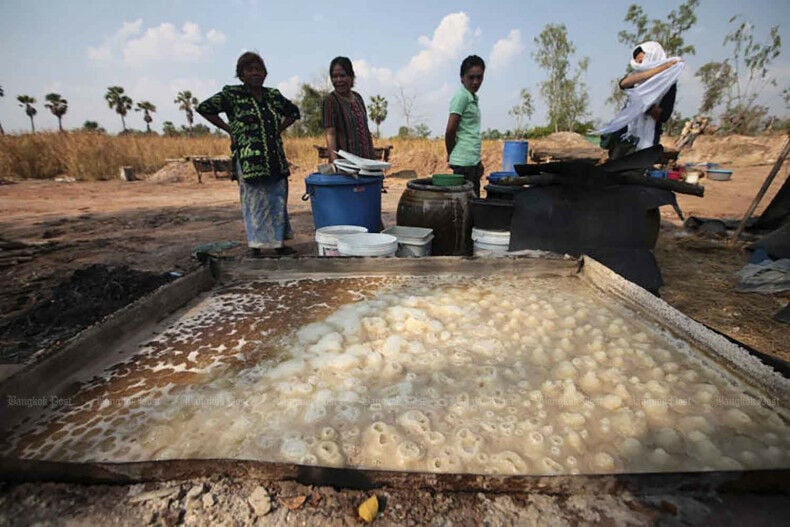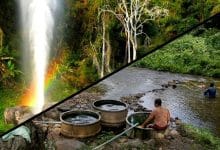Bio-cement project launched to combat soil salinity in Thailand

King Mongkut’s University of Technology Thonburi (KMUTT) and the Royal Irrigation Department (RID) have launched an innovative project to address agricultural issues caused by soil salinity in northeastern Thailand using bio-cement.
Thidarat Bunsri, part of the Smart Biomaterials and Technology Research Group at KMUTT, explained that bio-cement is created through microbial-induced calcium carbonate. The key organic compound in this process is derived from microbes found in fermented fish bone residue, a byproduct of large-scale fish sauce production.
Bio-cement, according to Thidarat, is resistant to salinity and utilises geopolymer technology to retain rainwater while preventing salt infiltration.
Peerawat Phuengpaphat, a civil engineer with RID, noted that saline soil and sandy earth have long posed significant challenges to agriculture in the region. The area, once submerged by the sea, has a rock salt layer in the groundwater, and its sandy soil struggles to store rainwater.
During the rainy season, freshwater quickly drains through the soil, whereas in the dry season, groundwater rises and forms salt crystals on the soil surface, complicating crop cultivation, said Peerawat.
“Bio-cement could be instrumental in constructing irrigation canals and other water systems, addressing water leakage issues in the region.”
Scientific breakthrough
The bio-cement compound used in this project includes gangues containing silica and alumina, a microbial solution, and egg shells, which serve as nourishment for the microbes. This material is resistant to salt erosion and possesses self-repair capabilities, as the microbes generate calcium carbonate crystals to mend micro-cracks.
Private sector support for production has come from companies such as Charoen Pokphand Foods and Akara Resources mining company, Thidarat mentioned. She added that bio-cement could replace conventional cement or plastic HDPE sheets, which are typically used for water retention but can degrade and contaminate the soil with microplastics.
A pilot test is underway in a rice field at the Irrigation Experiment Station No 3 (Huay Ban Yang) in Mueang district, Nakhon Ratchasima. Bio-cement sheets, each measuring 75 centimetres x 75cm and 8.5cm thick, have been installed in field lysimeters to monitor the rate of water evaporation in plants and soil.
This test will also evaluate the bio-cement’s effectiveness in slowing water absorption and preventing salt from the ground from entering the water. Thidarat stated this pilot test will run for one growing cycle, said Peerawat.
“The test will run for one rice-growing cycle, approximately four months, with regular checks on the material’s self-repair capabilities and salt resistance.
“If successful, the team plans to develop a bio-cement formula suitable for 3D printing, potentially to create artificial reefs or bio-concrete for water retention in construction.”
The project is not only a significant advancement in agricultural technology but also a step forward for environmental sustainability. Thidarat expressed optimism that the technology would soon be applicable in other regions, reported Bangkok Post.
Latest Thailand News
Follow The Thaiger on Google News:


























